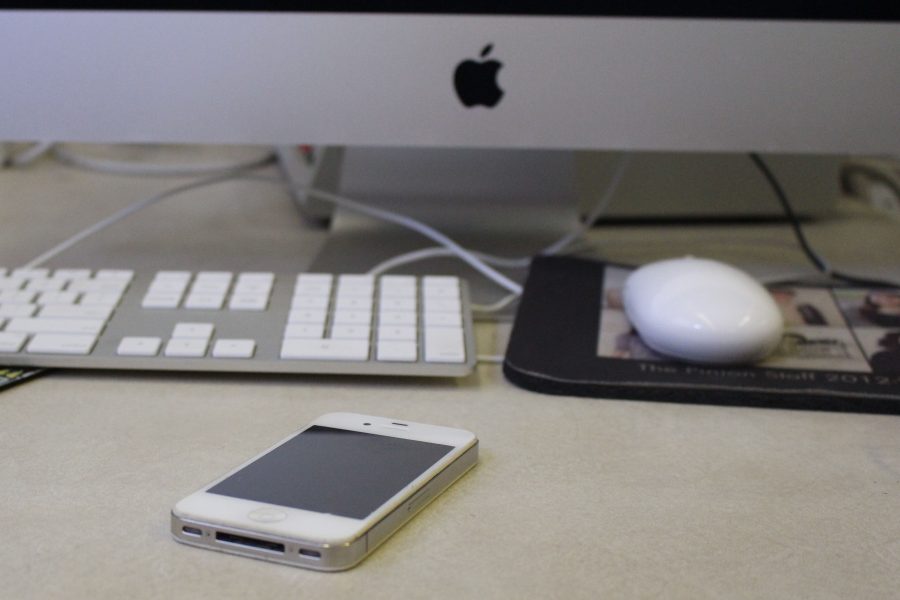No Tech?
A school in London bans technology at school and at home
April 28, 2016
People use technology for various purposes. Imagine if it were taken away. It would be awful and hard. What if the privilege to use technology like computers, phones, etc. were taken away from not only school, but your home as well? In London, a school banned technology at school and at home.
According to the London Acorn School’s website, the school supports the headmaster and founder in nailsworth Graeme Whiting for his “commitment to an electronics-free environment for children to encourage their innate creativity and personal growth.” Yes, it’s actually true that the school banned technology at their school and at home for children to help focus more. Based on the text on qz.com, Andrew Thorne, the chair of the boards of director at Acorn School told the Telegraph that the purpose of the ban on technology was to allow children space to grow. Quote “So instead of turning them into consumers of technology and television, they have to learn to create their own activities. It is about encouraging creativity so that the children are active creators rather than passive consumers” end quote said Thorne.
To start it off, in order to achieve this goal, they start off with not letting children watch television until ages 12. That when that happens, they are only allowed to watch documentaries that are only approved by parents. When children reaches the age 14, they are able to watch movies at the time. They aren’t allowed to surf the web until two years after when they turn 16. Could you imagine if you have to wait that long until at age of 16 just to get hands on the internet? When you think about it, children have to actually read about it in a book instead of typing it on keyboard to get the information they need.
In Mckinley High School, it’s different than Acorn School. Students have to use computers at the school to help them with their work at school and at home. Freshman Victoria Kahele-Faufata said that technology is entertaining.
“It’s useful and you can search up things and find information easier,” said Faufata. When off the screen, she goes out and play or read a book somewhere. She likes to go on her phone at most of the time to play games on apps, search on the internet, use it to help her on her homework.
“I would be mad because I like my phone,” said Faufata. She did however said the school made a good decision on banning the tech because it would help them focus more and wouldn’t get distracted.
Freshman Joey Nhieu states that technology helps students with ideas they don’t know about. Like Victoria, she would also read a book at home, but she also doodles around on paper.
“I would handle it fine if they were to ban tech at school and at home,” said Nhieu. “I think it’s both good and bad because during times you need one and sometimes it just get in the way.”
“I like the accessibility of information,” said Language Arts teacher Erin Britos. “I like how I could integrate it into lesson plans to make lesson learning more interesting and lively for the students.” When Britos isn’t watching television or working on the computer, she worries about her health and takes care of her households.
“I don’t think it’s possible to stay in age,” said Britos. “I think it’s so embedded in our culture now and I think that you know even little babies could pick a device and know how to work it because it’s embedded in their DNA. I feel like my brain is going to explode because it just keeps expanding with more layers of new technology. So students now they didn’t have to learn all the old stuff. They just get born into the new technology and get to start right there,” said Britos.
Britos thinks the school made a good decision with banning the technology at school and at home. She states that as an adult she knows how to use them, but she thinks children need to develop their brains organically.
“My son does not have a smartphone,” said Britos. “My son does not have his own computer. He has to go through me to use the computer and that would stay that way until I know he is truly literate,” said Britos.
Without using technology at work, Erin thinks it would be much stagnant and students wouldn’t be able to complete assignments at a expected pace.
“I wouldn’t be able to differentiate with my students as well,” said Britos. “I think as far as learners in their environment, if you can’t provide as much as many tools and possibilities for them, you eliminate those barriers for them to learn,” said Britos.






